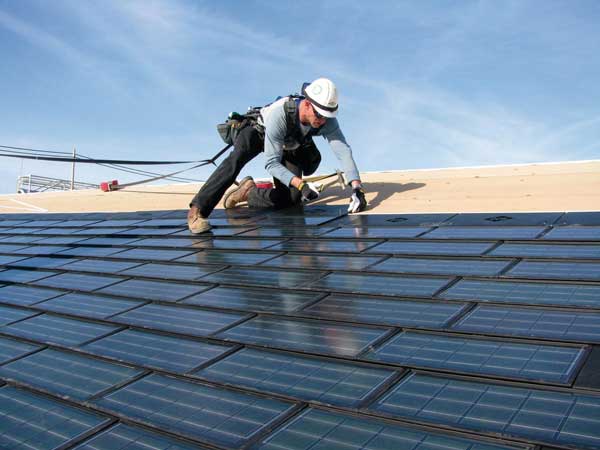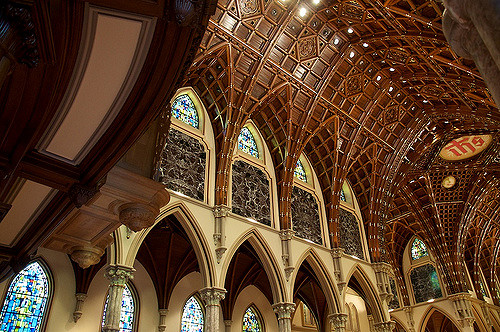Whether you are selecting a new roof for your current home or building a new house, you need to reckon with several variables. Structural stability, durability, and cost are the most apparent considerations because the roof should be capable of adequately protecting your home, last for a reasonably long time, and not make a beggar out of you. A lot, therefore, depends on the size and shape of the roof as well as the roofing materials chosen. As an experienced roofer will tell you, apart from style, attributes like material weight and substance, installation requirements, and product cost can influence your final decision. Some insights:
Roof Area
In real estate, almost everything is measured in square feet. However, roofers prefer to use the term ‘square,’ which is nothing but an equivalent of 100 square feet and derived from a square measuring 10 feet on its sides. To illustrate, a typical two-story house with an area of 2000 sq. Ft. will have a gable roof of a maximum of 1,500 sq. Ft. In roofer jargon, this would be equivalent to 15 squares.
Cost of the Roof
Several factors influence the cost of a new roof; prime among them is the roofing material, of course. However, other factors, such as the condition of the existing roof, whether the new roof can be laid on top of the existing ones or the old roof needs to be stripped away, and if the structures supporting the roof need to be repaired are also vital. The roof shape plays an essential function in determining the cost. It can cost substantially more if the gable roof has several breaks in its planes due to the occurrence of intersecting rooflines, multiple chimneys, skylights, turrets, or other such elements that need to be worked around while keeping the joints waterproof.
The Roofing Material
It may come as a surprise to the layman, but not all roofing materials can be used to good effect on every type of roof. Roofs that slope less or are flat need to be covered with a material that can be substantially different than that suited to a steeply raked roof. The roof structure of many homes also cannot support heavier materials like tile or slate. The best way to proceed is to consult a professional roofer or even your architect and get estimates for the different materials available. Some popular options:
Asphalt Shingle
One of the least costly and, therefore, one of the most popular roofing materials, the installation of asphalt shingles, is the most simple. Essentially, it is an asphalt-impregnated fiberglass medium that is then given a sand-textured finish. Typically, you can choose between the standard-thickness shingles and the thicker, laminated products. While the laminated ones are twice as expensive, they are more durable and last half as much more extended, which means that you can expect them to last around 25 years as opposed to 15 years when using the standard ones. The laminated ones score more as far as appearance is concerned because they are manufactured to have different textured finishes.
Metal
You can choose between aluminum, copper, steel, and lead and relax in the knowledge that they are all extremely durable. However, metal roofs are quite expensive in comparison to other alternatives. Only copper/asphalt and lead roofing need to be bought as shingles; all other materials are purchased as sheets that are then welded together. Aluminum has emerged as the metal of choice with a large number of Houston Texas industrial roofing customers, due to its longevity, and ease of installation.
Wood
A popular choice for centuries, wood remains a perfect option even in these days. Typically, the split or sawn shingles are made out of cedar, southern pine or redwood. You can expect them to last around 25 years, which is the same as laminated shingles, but they can averagely cost double the amount.
Tile And Cement
Tile roofing can be very aesthetically pleasing, especially when the house architecture is Colonial, Spanish, or Mission style. Unfortunately, roofs of this material are very heavy, so the supporting structure needs to be strong, and it can be costly to install.
Slate
Of all the roofing materials, slate is one of the most durable and can be very easily recycled even after the fasteners holding it in place reach the end of their lives. Available in several finishes depending on where it was mined, it is also one of the more expensive options and also quite heavy.
Conclusion
Even though there is a large assortment of roofing materials, the final choice usually boils down to the nature of the existing roof and the budget that you can allocate to the roof. The cost is often a reflection of the durability, so any decision is a tradeoff between durability and value.










what about policarbonate roofing with aluminium it is another great solution